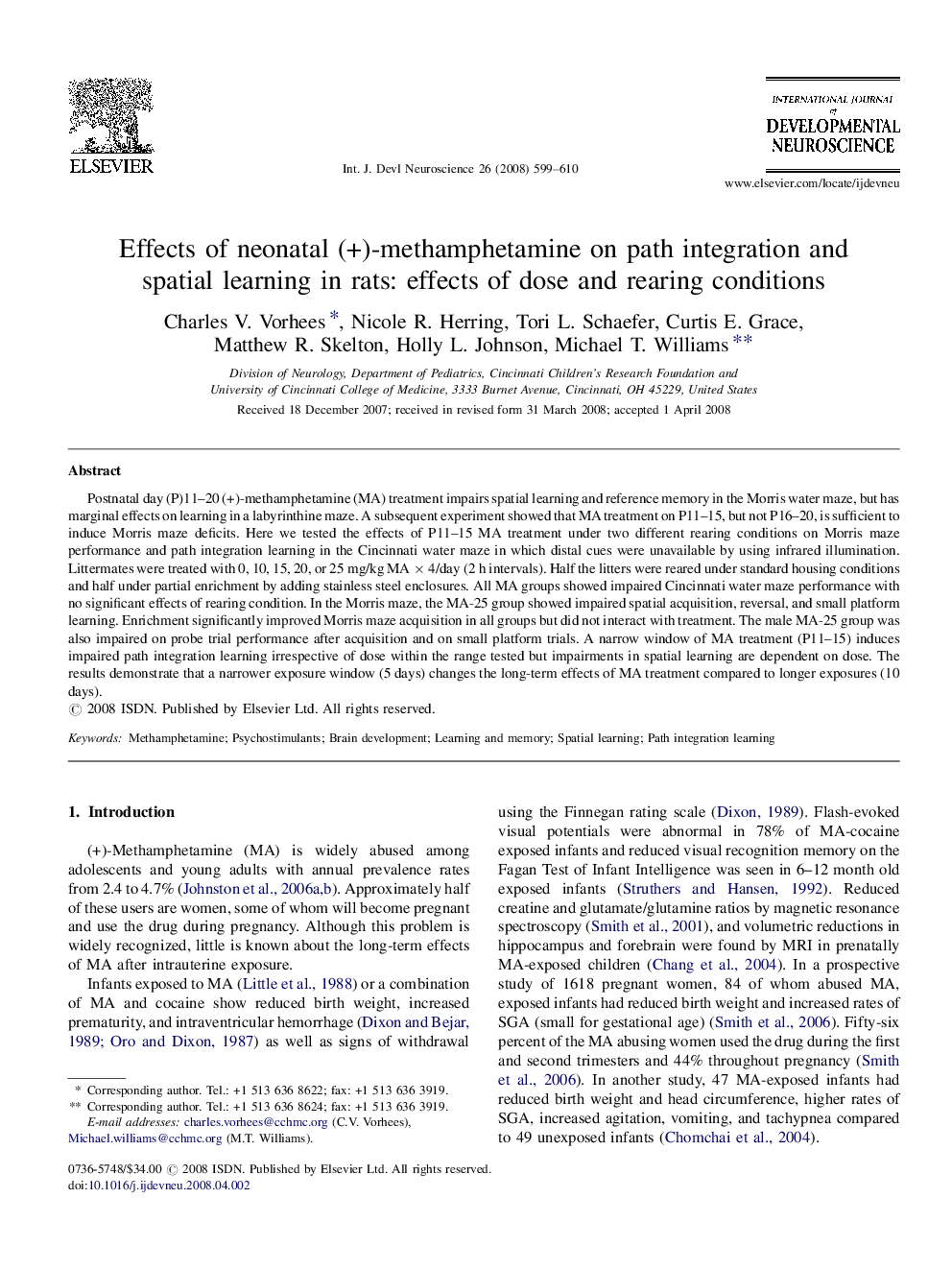| Article ID | Journal | Published Year | Pages | File Type |
|---|---|---|---|---|
| 2787069 | International Journal of Developmental Neuroscience | 2008 | 12 Pages |
Postnatal day (P)11–20 (+)-methamphetamine (MA) treatment impairs spatial learning and reference memory in the Morris water maze, but has marginal effects on learning in a labyrinthine maze. A subsequent experiment showed that MA treatment on P11–15, but not P16–20, is sufficient to induce Morris maze deficits. Here we tested the effects of P11–15 MA treatment under two different rearing conditions on Morris maze performance and path integration learning in the Cincinnati water maze in which distal cues were unavailable by using infrared illumination. Littermates were treated with 0, 10, 15, 20, or 25 mg/kg MA × 4/day (2 h intervals). Half the litters were reared under standard housing conditions and half under partial enrichment by adding stainless steel enclosures. All MA groups showed impaired Cincinnati water maze performance with no significant effects of rearing condition. In the Morris maze, the MA-25 group showed impaired spatial acquisition, reversal, and small platform learning. Enrichment significantly improved Morris maze acquisition in all groups but did not interact with treatment. The male MA-25 group was also impaired on probe trial performance after acquisition and on small platform trials. A narrow window of MA treatment (P11–15) induces impaired path integration learning irrespective of dose within the range tested but impairments in spatial learning are dependent on dose. The results demonstrate that a narrower exposure window (5 days) changes the long-term effects of MA treatment compared to longer exposures (10 days).
